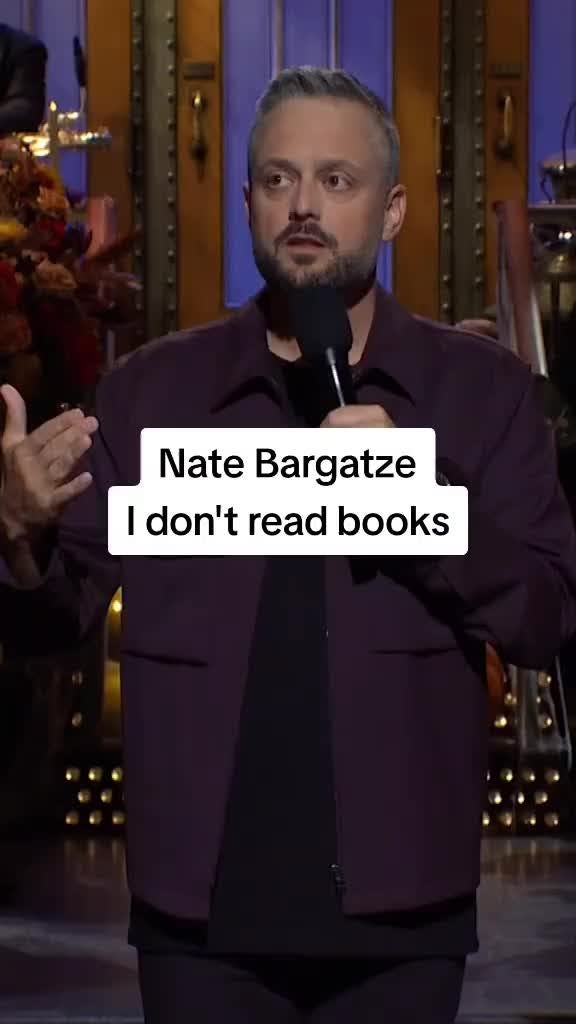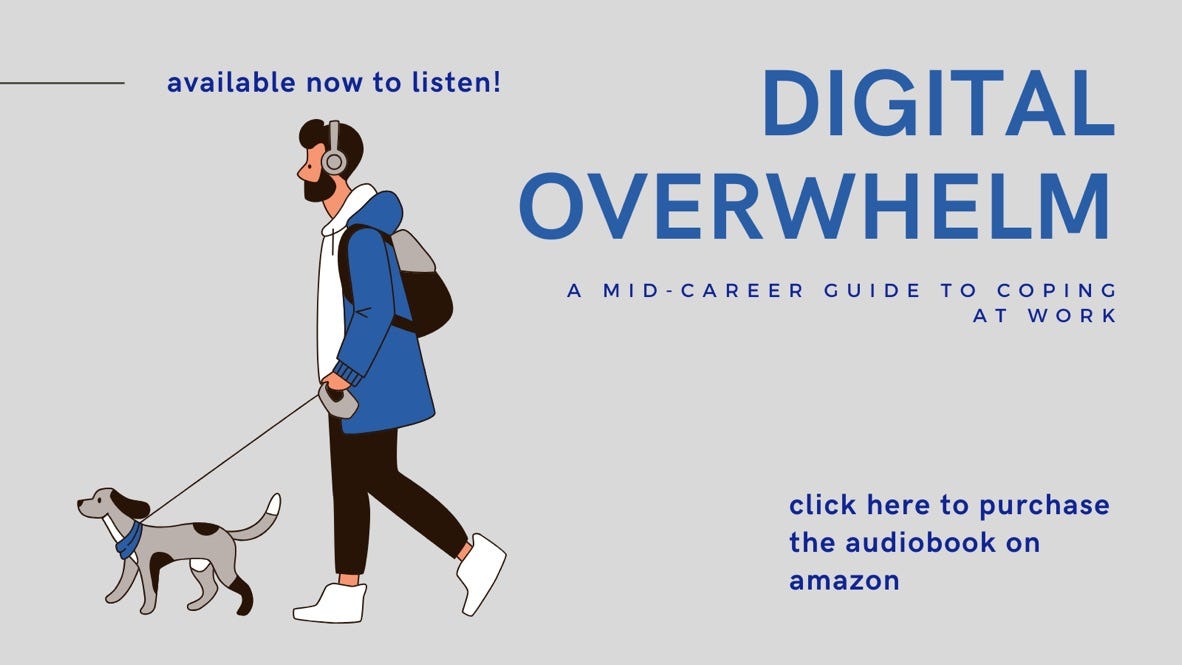You, Reinvented
When you lose your job, when you fail at work, take this invitation for "a time after what comes after."
Hey there, how’s things, and welcome to the post I almost didn’t write!
Mondays are for planning this work-culture newsletter so Hannah can get everything together for Tuesday morning.
But yesterday, I compleeeeeeetely forgot. Can I blame it on the Center for Faith & Writing? Those amazing peeps threw a book launch party for my just-dropped Digital Overwhelm. So many people came! And, oh geez, Jane Zwart’s introduction to the event—so seeing. Afterwards, a friend said, “I want her to write my obituary.” I asked him if there’s a deadline.
Then somebody named me gave a speech about the book I thought I was going to write and then about the book that actually showed up. Afterwards, there was supper with a Chicago friend and drinks with other friends. And by 9:30, I’m headed for home when a plaintive text from Hannah pops up, “Anything for tomorrow’s newsletter?”
No, I said, sounding a lot like the Human Beinz. No-no, no, no, no-no-no, no, no-no, no, no-no. (Nobody forgets to write like I do.)
But at 4:15 AM, my brain put my bare feet into slides. And the dog was on the stairs, and the coffee was in the pot. And there was toast, and there was morning, and let there be Tuesday’s Mode/Switch.
A few hours later, I’m still typing about a trend, a study, a story, and a shift—this week, I’m focused on the experience of job loss. I’m thinking about getting fired because a dear friend told me she’s about to be let go.
So, what do you do when your job comes to an end?
(Hit “reply” to this email, or comment below: how do you cope when a job’s ending?)
A Trend
Have you come across the anti-productivity movement? Okay, it’s not exactly a trend. It’s some of the oldest wisdom there is. But Oliver Burkeman of Four Thousand Weeks fame has joined the movement of Not Being Productive. You’ve also seen this movement in the “lying flat” folks in China and Jenny Odell’s How to Do Nothing and Cal Newport’s recommendations for slower, deeper work.
But Burkeman is an anti-productivity guru with an eye for death. His book’s opening line reminds you that your life “is absurdly, terrifyingly, insultingly short.”
You got about 4,000 weeks, in other words. He’s also generated another book, Meditations for Mortals, plus, a series of articles in The Guardian called “This Column Will Change Your life” (this Brit’s got a sharp quill), plus a newsletter called The Imperfectionist.
This trend suggests that, when things fall apart at work, it’s helpful to remember that, hey, good news: you’re also dying.
But is there anything else to bear in mind when you lose your job and your ever-loving mind? I think so.
A Study
Ever heard of Hanna Arendt? 10/10 recommend you spend one of your four thousand weeks reading The Human Condition. There, you’ll find that, for her, to be human is to begin again. She calls it natality. (Rhymes with mortality, but means the opposite.)
My friend DeAmon Harges likes to ask partygoers to tell the story of their birth. It’s a question about being a living soul. The fact of your birth says a lot about what it means to be human. And I think DeAmon and Arendt are on to something.
You’re going to die. But in the meantime, you have this weird capacity to start again and again.
A Story
Last week, I had a big project deadline. (I hear there’s a lot of that going around.) But on the afternoon the project was due, I also had a memorial to attend, honoring my Aunt Dee, whose been a friend to me for half a hundred years.
When I got to the cemetery in some north-Michigan woods, I found a narrow track winding up a hill to some woodsy grounds. I saw a clump of folk unrecognizable in their coats and hats. “Those look like my people,” I muttered as I turned off the car and sat, feeling suddenly shy. I got out and started stalking about looking at headstones and wishing for a stocking cap.
Nothing like a headstone to fade out the importance of a deadline at work.
Eventually, I joined the other chilly mortals and sang “Amazing Grace” and told stories about this woman’s gentle, attentive life. And then, there was a sudden stirring in the crowd, a mutter of alarm. I turned just in time to see a man on his back, his feet in the air, his collapsed canvas chair beside him. We rushed over and helped him up. His head had missed a headstone by inches.
I keep thinking about that guy getting up from a grave, smiling at the rest of us, a little embarrassed, but very much in on the joke.
A Shift
Every week, I suggest a switch in mindset and behavior—not to eliminate your overwhelm but to help you whelm better. How do you do that in times of vocational disruption, job loss, work failure? I’m suddenly recalling a Jack Gilbert poem.
“Scheming in the Snow” tells the story of a young woman given a jade ring a thousand years old. One day, she trips and falls. The ring shatters. She turns to the fellow who gave her the ring, her eyes horrified, and he says—
No, wait. No spoilers from me. You absolutely must read this poem. But here’s the line I was trying to remember:
There is a time after what comes after / being young, and a time after that…
I love that phrase, “a time after what comes after.” Sure, it matters that you get only four-thousand weeks to live and breathe, give or take. But this week’s mode/switch takes you from from mortality back to natality. From the end of all things to beginning again.
Here’s looking at you and the time after what comes after, and the time after that.
Listen While You Work
And just as I’m finishing the newsletter, behold, Hannah’s come through yet again. Here’s your LWYW playlist for the week.
We Are All Underwater
Behold the irony in recommending my new book about digital overwhelm in an age of publishing overwhelm. Just what you need, right, when there’s a tsunami of books already breaking over your bedside table.
 Tiktok failed to load.
Tiktok failed to load.Enable 3rd party cookies or use another browser
Still, that’s the plunge I’m inviting you to take in the conversations of this new book. It’s a book about learning to live and breath and see under all the watery whelm of the digital.
But if you’re like, Craig, you’re crazy—reading’s the worst, I bring good tidings of an audio book. I’ll read the book to you so you don’t have to.







